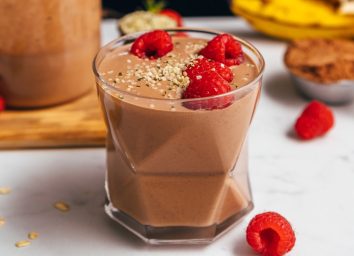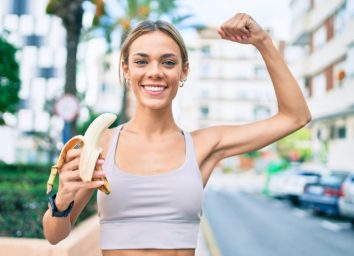5 Eating Habits To Avoid After You Exercise, Say Dietitians
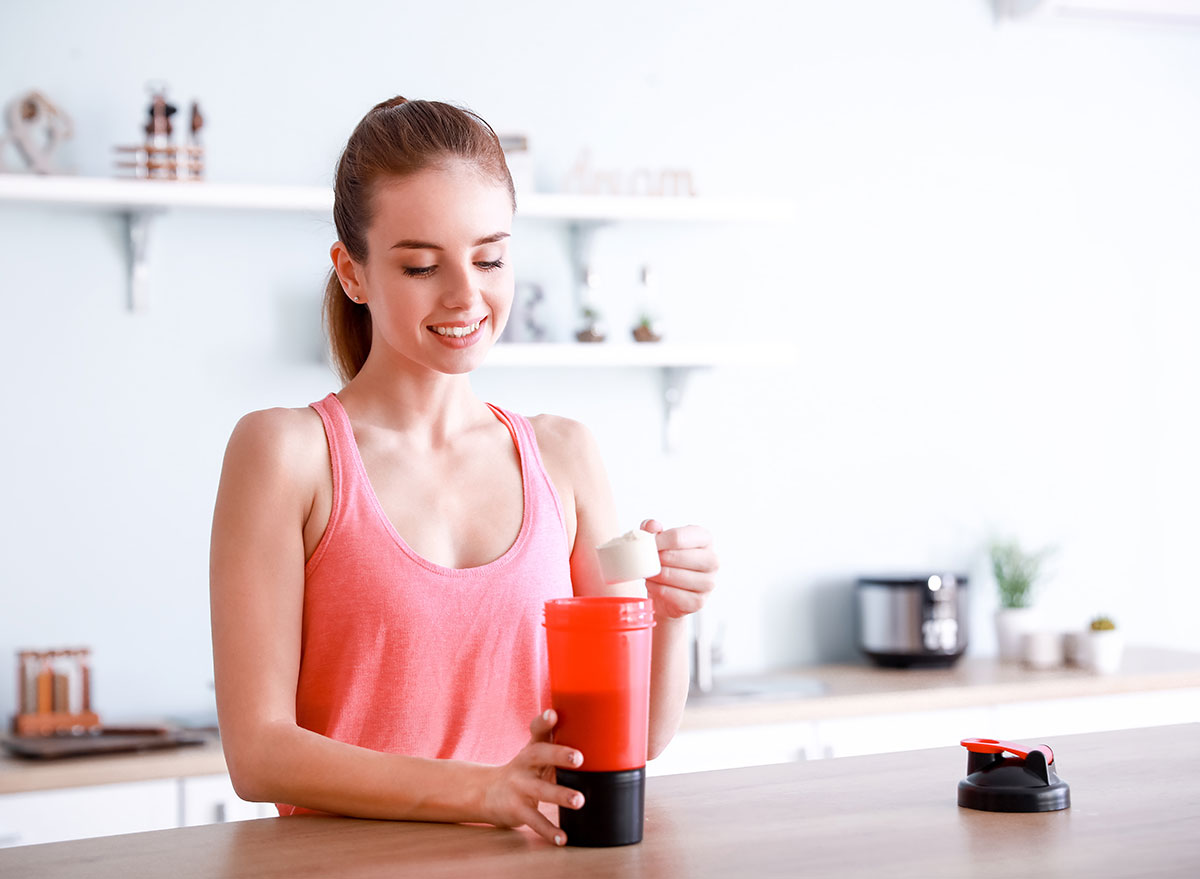
Sweating for the cookie? We feel you. But when it comes to post-workout nutrition, there are several guidelines—both surprising and obvious (like the aforementioned cookie)—to keep in mind. Ahead are five such eating habits to avoid after you torch those calories on your run, log miles on your exercise bike, burpee around in your boot camp class, or however you move and groove.
Worth noting: "Eating after a workout is essential to optimizing recovery. It's an opportunity to refuel your muscles, reduce inflammation, and help build or maintain lean muscle mass," says Erin Kenney, RD, MS, LDN, CPT, a registered dietitian, certified personal trainer, and CEO of Nutrition Rewired. So be sure to nosh on healthy fare like these 16 post-workout snacks fitness experts swear by or other wholesome eats.
Eating salads right after a workout.
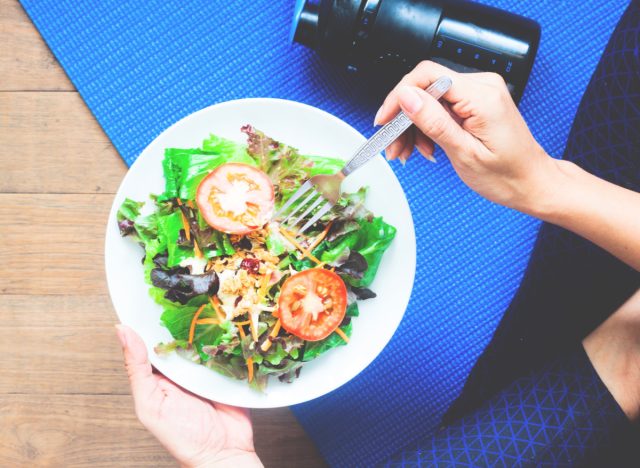
Yep, post-workout is one time that it may be okay to skip a salad, or at least pair it with something else. "Salads are high in fiber and require more energy for the gut to digest. Right after a workout, most of the blood is shunted away from your digestive tract, making it a better choice for a meal later in the day," says Kenney. "Instead, opt for quick replenishing foods like carbs and protein like a smoothie with banana and protein powder."
Sipping on a post-workout sports drink.
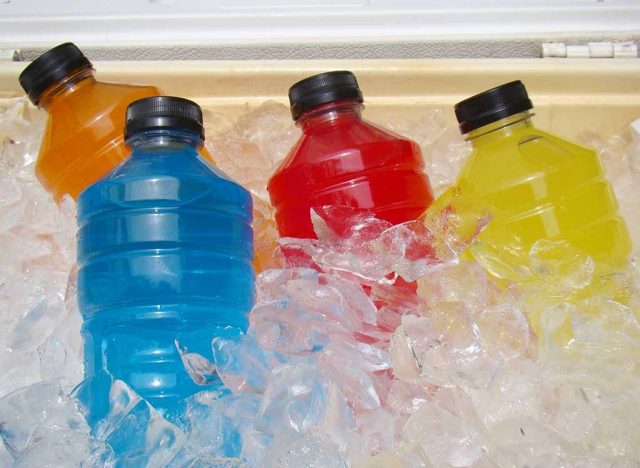
If your exercise is lasting less than 60 to 90 minutes, Kenney says it's unlikely that you need a sports drink. "Eating balanced meals and snacks and drinking water is enough to replenish lost electrolytes and replenish stored glycogen," she says. "Most sports drinks are high in refined sugars and additives that are not great for someone who is looking to optimize their health."
Forgetting to hydrate.
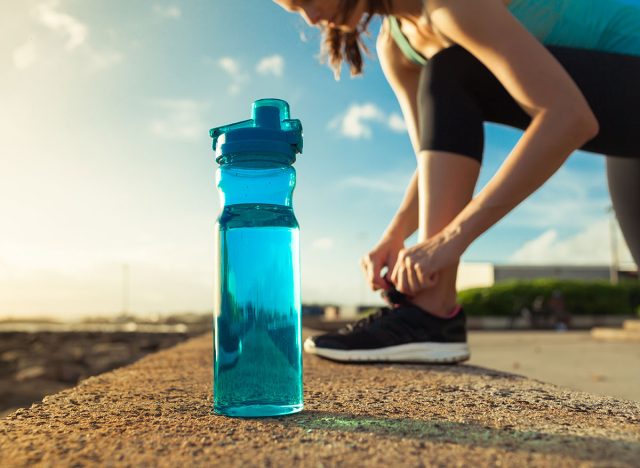
Not drinking H2O after you sweat? No good. "Drinking water after a workout is just as important as it is before and during. When we exercise, fluids are lost through sweat, and need to be replaced," says registered dietitian Stephanie Hnatiuk, RD, CDE, PTS, owner of Stephanie Hnatiuk Performance Nutrition. "The more we lose, the more we need!"
As Hnatiuk highlights, dehydration can lead to headaches, fatigue, muscle cramps, and GI issues. "Aim to drink at least 2 cups (16 ounces) after exercise. Additional fluids or electrolytes may be needed if engaging in high-intensity exercise, in hot/humid environments, or you are a 'salty' sweater."
Not eating carbohydrates.
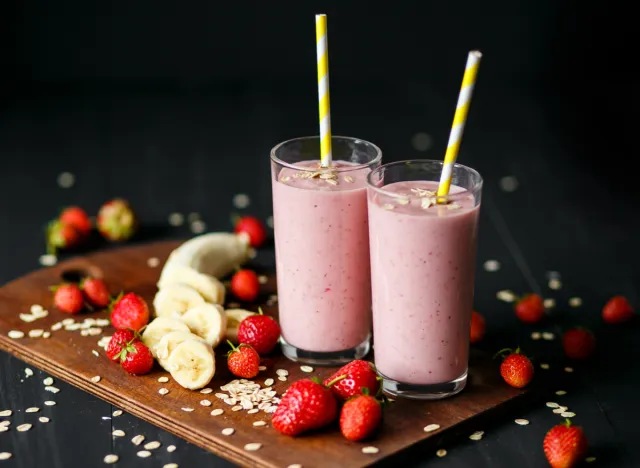
"You may think that protein is all you need after exercising, but carbs are just as important. Carbs are our body's primary fuel source and are needed after a workout," says Hnatiuk. "A combination of protein and carbs will aid in the recovery process by replenishing glycogen stores, helping to build and repair muscle, and preparing you for future [workouts]." For example, rather than just drinking a protein shake mixed with water, Hnatiuk suggests having a high-protein smoothie with fruit instead.
Not eating at all.
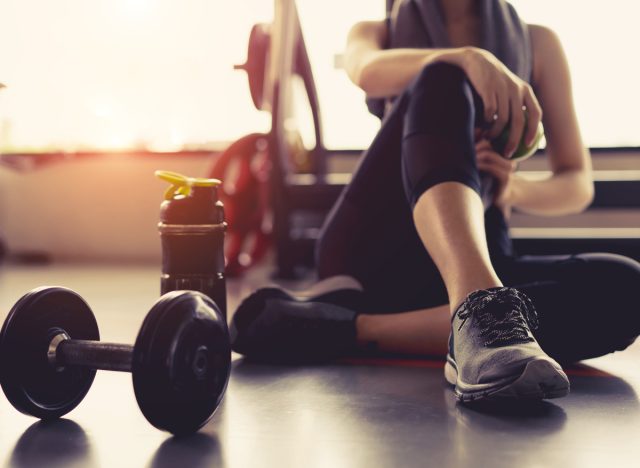
We know we've said it before, but it bears repeating: "It might be tempting to use exercise as a way to maintain a caloric deficit for weight maintenance or loss, but it's important to eat and refuel in order to maintain lean muscle mass," says Kenney. "Eating helps to lower your stress hormones and balance your blood sugar throughout the day."

